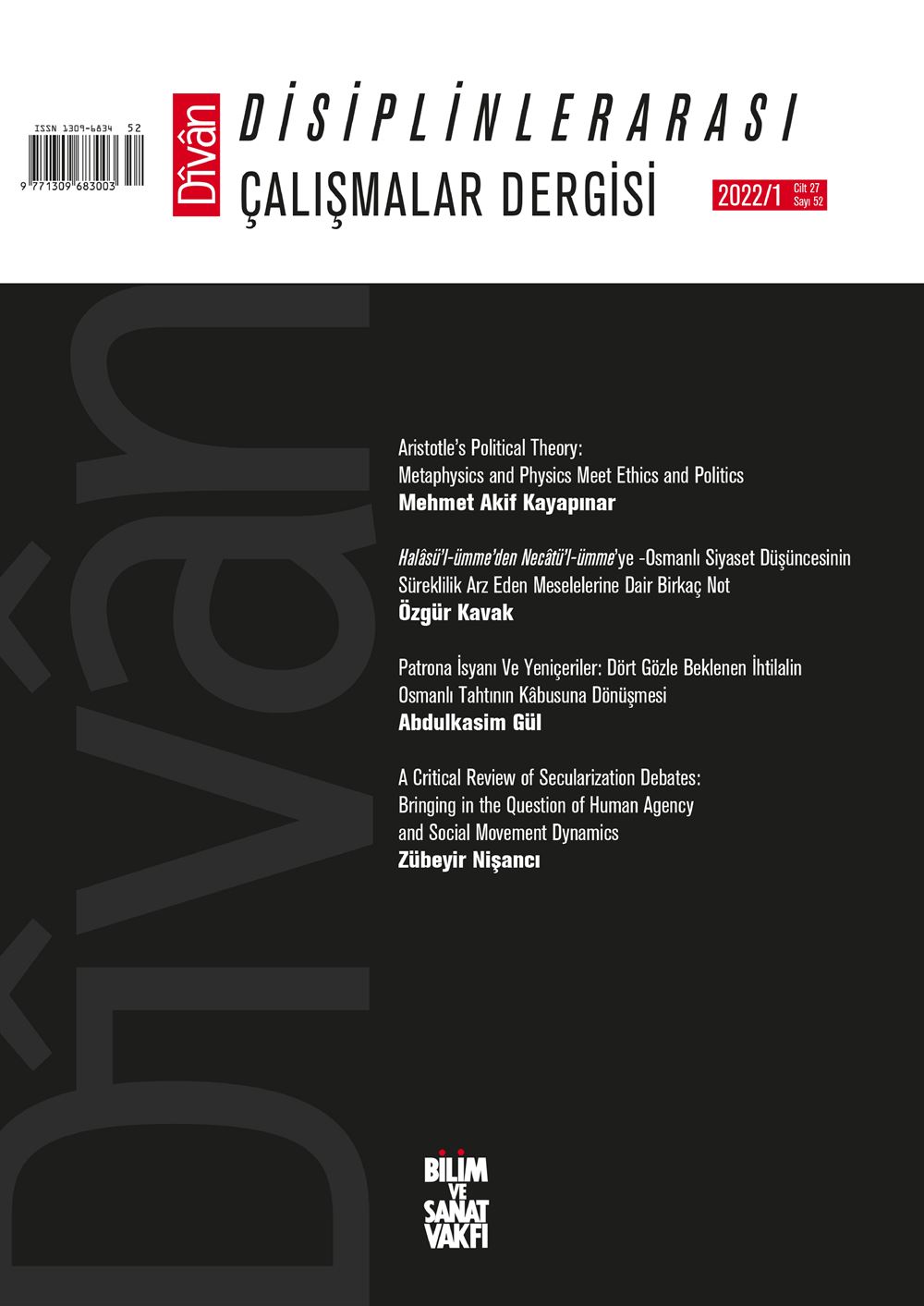Journal of Interdisciplinary Studies Issue - 52
Articles
Aristotle's political theory is the major other of modern political imagination. Unlike the mechanicism of modern political consciousness, Aristotle’s apporach exemplifies the typical organicist understanding of the pre-modern era. In this respect, it is of great importance to separate Aristotle's political theory into its logical and conceptual components both in order to better understand the modern political conception and to see its traditional alternative.
M. Akif KAYAPINARThe treatise of Halas al-umma fî ma’rifat al-a’imma, written in Arabic, by Lutfi Pasha (d. 1563) one of the Grand Vizier’s of the Suleiman the Magnificent, rejected the requisite of belonging to the Quraysh tribe for the caliphate. Based on largely Hanafi fiqh books, he announced the Ottoman sultans as legitimate caliphs in the person of Suleiman the Magnificent by this study.
Özgür KAVAK1730 Patrona Halil Rebellion and the presence of Janissaries in the rebellion is the subject of this article. The article is divided into six parts, apart from the introduction containing a brief literature review. The study first revealed who the rebels were. Their neighborhoods and their entrenchedpartnership sections have been introduced.
Abdulkasım GülThis paper critically and comparatively reviews the basic assumptions of two most prominent secularization theories such as the secularization theory and the rational choice theory. Not denying practical values of their conceptual tools, this paper argues that these two theories fell short of providing (1) theoretically and methodologically well-grounded articulations (definitions) of religion and secularity and (2) systematic accounts of the role of social forces (collective action) primarily including social movement dynamics in their sociological studies of secularization.
Zübeyir Nişancı





